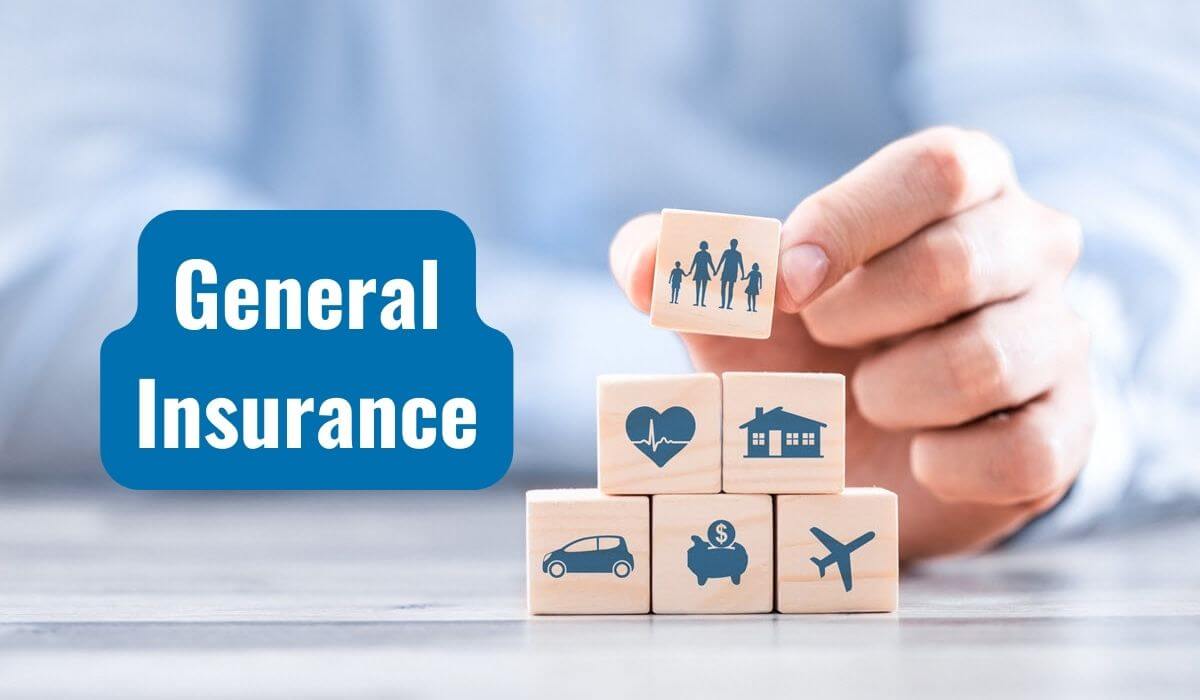What to Do After a Car Accident
Getting into a car accident is never a pleasant experience, and it can be terrifying. But being prepared and knowing what to do after a car accident can make all the difference. Nobody ever plans on being in a car accident, so they may not know what to do in a situation like that. Here is what you should do after you have been involved in a car accident.
Safety First
Pull over to the side of the road, turn on your hazard lights, and check for injuries. If you or anyone else is injured, call 911 immediately. Even if you don’t feel injured, it’s important to get checked out by a doctor, as some injuries may not be immediately apparent. Once you’ve checked for injuries, get out of your car and check on the other driver(s) involved in the accident.
Move to a safe location if possible, such as the side of the road or a parking lot. Turn on your hazard lights to alert other drivers of the accident. Check yourself and your passengers for injuries. If anyone is injured, call 911 immediately. If you are able to move your vehicle, do so to a safe location.
Here are some additional safety tips to keep in mind:
- Stay calm and don’t panic. This can be difficult to do, but it’s important to stay in control of your emotions so that you can think clearly and make good decisions.
- Be aware of your surroundings and potential hazards. This includes other cars, pedestrians, and debris.
- If you’re feeling dizzy or disoriented, sit down or lie down. Don’t try to move around too much, as this could make your injuries worse.
- Don’t leave the scene of the accident. This is important for both legal and insurance reasons.
- Don’t admit fault to the other driver or the police. Even if you believe you’re at fault, it’s important to let the insurance companies sort it out.
What to Do after a Car Accident
In the aftermath of a car accident, it’s natural to feel shaken and overwhelmed. However, it’s crucial to stay calm and take the necessary steps to ensure your safety and protect your rights. Here’s a comprehensive guide on what to do after a car accident:
Exchange Information
Once you’ve checked for injuries and ensured everyone’s safety, the first step is to exchange information with the other driver(s) involved. This includes:
- Full Names: Get the full names of all drivers involved in the accident.
- Contact Information: Collect phone numbers, addresses, and email addresses from the other drivers.
- Insurance Details: Obtain the names of their insurance companies, policy numbers, and expiration dates.
- License Plate Numbers: Note down the license plate numbers of all vehicles involved in the collision.
Gather Evidence
Take Photos: Capture images of the accident scene, including damage to vehicles, injuries, and any other relevant details.
Get Witness Information: If there were any witnesses to the accident, ask for their names and contact details.
Report to the Police: In case of serious injuries or substantial property damage, it’s essential to file a police report. The officer will document the scene, take statements from those involved, and provide you with a copy of the report.
Protect Your Health
Seek Medical Attention: Even if you don’t feel seriously injured, it’s crucial to get checked by a doctor. Some injuries may not be immediately apparent.
Document Injuries: Note down any pain, symptoms, or discomfort you experience after the accident.
Follow Doctor’s Orders: Adhere to your doctor’s instructions regarding rest, medication, and follow-up appointments.
Contact Your Insurance Company
Notify Your Insurer: Promptly inform your insurance company about the accident. Provide them with all the details and documentation you’ve gathered.
Cooperate with the Adjuster: The insurance adjuster will investigate the accident and determine the extent of coverage. Cooperate with their inquiries and provide any requested information.
Consider Legal Options
Consult a Lawyer: If you’ve sustained serious injuries or believe the other driver was negligent, consider consulting with an attorney. They can help you understand your legal rights and options and guide you through the claims process.
File a Lawsuit: In some cases, it may be necessary to file a lawsuit to recover damages for your injuries and property damage. Your lawyer can advise you on the best course of action.
What to Do After a Car Accident
Getting into a car accident can be a genuinely distressing experience, and it’s only natural to feel disoriented and overwhelmed in the immediate aftermath. However, taking swift and decisive action can make all the difference in ensuring your safety and protecting your interests. Here’s a comprehensive guide to help you navigate the steps you should take after a car accident.
Document the Scene
Once you’ve ensured your safety and any injured parties have received medical attention, it’s crucial to start documenting the accident scene. This will provide valuable evidence for insurance companies, police reports, and potential legal proceedings. Here are some key steps you should take:
1. **Call the police.** Even if the accident seems minor, it’s always a good idea to call the police. They can file an official report that will document the details of the accident and provide an objective account of what happened.
-
Take pictures. Use your smartphone or camera to capture as many photos as possible of the damage to all vehicles involved, the surrounding area, and any visible injuries. These photos will serve as essential evidence to support your insurance claim.
-
Gather information. Exchange information with the other driver(s) involved in the accident, including your name, contact information, insurance company, and policy number. Also, obtain the names and contact information of any witnesses who may have seen the accident. You may also want to take note of the time and date of the accident, the location, and the road conditions.
After a Car Accident: A Comprehensive Guide to What to Do
Getting into a car accident can be a frightening and stressful experience, but knowing what to do can help you navigate the aftermath with greater ease. Here’s a detailed guide to ensure you take the necessary steps to protect yourself, others, and your rights.
Report the Accident
First and foremost, call the police to report the accident, even if it appears minor. This is crucial for several reasons: it initiates an official record, documents the details, and ensures a neutral party is involved. Failure to report an accident can have legal consequences. Once you’ve contacted the police, exchange information with other drivers involved, including names, contact details, insurance information, and license plate numbers.
Seek Medical Attention
Even if you don’t feel injured immediately, it’s essential to seek medical attention as soon as possible. Some injuries, such as concussions or internal bleeding, may not manifest immediately. A medical examination can diagnose and document any injuries to ensure proper treatment and prevent future complications.
Protect the Scene
If possible, move your car out of traffic to avoid further accidents. Turn on your hazard lights and place flares or warning triangles around the accident scene. This will help keep you and others safe while waiting for assistance. Take pictures of the scene, including damage to vehicles, surrounding areas, and any visible injuries. These photos will serve as valuable documentation for insurance and legal purposes.
Contact Insurance Companies
Notify your insurance company about the accident as soon as possible. They will provide guidance on filing a claim, arranging repairs, and covering medical expenses. Additionally, provide the insurance information of all other involved drivers to facilitate a smooth claims process.
Seek Legal Advice
If the accident resulted in significant injuries, property damage, or legal disputes, consider consulting an attorney. A lawyer can help protect your rights, ensure fair compensation, and guide you through the legal process. They can advocate for your interests, negotiate with insurance companies, and represent you in court if necessary.
Gather Evidence and Witnesses
Document the accident thoroughly by taking notes of the event, including the time, location, weather conditions, and any contributing factors. If there were any witnesses, obtain their contact information as their statements can be crucial in establishing liability.
Stay Calm and Cooperative
In the aftermath of an accident, it’s understandable to feel shaken or overwhelmed. However, it’s important to remain calm and cooperate with the authorities. Providing accurate information and being polite will help ensure a smooth and efficient process.
What to Do After a Car Accident
After a car accident, it can be tough to know what to do first. But by following these steps, you can help protect your rights and get the compensation you deserve.
Contact Your Insurance Company
Notify your insurance company as soon as possible to initiate a claim. Your insurance company will be able to help you with the claims process and provide you with a rental car if necessary. You should also contact the other driver’s insurance company.
Take Notes About the Accident
Write down everything you can remember about the accident, including the date, time, location, and any other details you can recall. Take photos of the damage to your car and the other vehicles involved. Get the names and contact information of any witnesses.
Seek Medical Attention
Even if you don’t feel injured, it’s important to see a doctor after a car accident. Some injuries may not be immediately apparent, and seeking medical attention can help you get the treatment you need to prevent further complications.
Get a Copy of the Police Report
The police report will contain important information about the accident, including the names of the drivers involved, the location of the accident, and any citations that were issued. You can request a copy of the police report from the police department that responded to the accident.
Contact a Lawyer
If you have been injured in a car accident, you may want to contact a lawyer. A lawyer can help you protect your rights and get you the compensation you deserve. Lawyers can help you negotiate with insurance companies and get you the maximum amount of compensation for your injuries. They can also represent you in court if necessary.
Car accidents can be a traumatic experience, but knowing what to do after a car accident can help protect your rights and get the compensation you deserve.
What to Do After a Car Accident: A Comprehensive Guide
The aftermath of a car accident can be overwhelming, leaving you shaken and unsure of what to do. But taking the right steps immediately can make a significant difference in your physical, emotional, and financial well-being. Here’s a comprehensive guide to navigate the aftermath of a car accident:
Seek Medical Attention
Even if you don’t feel injured, it’s crucial to get checked out by a doctor. Some injuries, such as concussions or internal bleeding, may not be immediately apparent. A thorough medical evaluation can rule out any hidden issues and ensure you receive prompt treatment.
Exchange Information
Gather as much information as possible from the other driver, including their name, address, phone number, and insurance details. Also, note down the make, model, and license plate number of their vehicle. This information will be essential for insurance claims and legal purposes.
Document the Scene
Take photos of the accident scene, including damage to vehicles, debris, and any visible injuries. These images will serve as valuable documentation for insurance companies and authorities. Note the location, time, and weather conditions as well.
Report the Accident
In most states, you’re legally required to report car accidents involving injuries, property damage, or at least a certain dollar amount. Contact the police as soon as possible to file a report. They’ll investigate the accident and provide an official record of events.
Notify Your Insurance Company
Inform your insurance company about the accident promptly. They’ll guide you through the claims process and help you determine your coverage options. Make sure to provide them with all the relevant information and documentation.
Seek Legal Advice
If your injuries are serious or the other driver is disputing fault, it may be wise to consider consulting with a lawyer. They can help you protect your rights, navigate the legal process, and maximize your compensation.
Preserve Evidence
Keep all medical records, bills, receipts, and other documentation related to the accident organized in one place. These records will be critical for insurance claims and any potential legal proceedings.
Contact Witnesses
If there were any witnesses to the accident, ask for their contact information. Witness statements can provide valuable support to your case.
Avoid Early Statements
While it’s natural to want to offer explanations after an accident, avoid making statements to the other driver or their insurance company without consulting with an attorney. You may inadvertently say something that could hurt your case.
Take Care of Yourself
The aftermath of a car accident can take a toll on your physical and emotional well-being. Allow yourself time to heal, both physically and mentally. Seek professional help if you experience any persistent pain, anxiety, or depression.
What to Do after a Car Accident: Essential Steps to Protect Yourself and Your Rights
In the aftermath of a car accident, the adrenaline rush and confusion can make it difficult to think straight. However, it’s crucial to take the right steps immediately to protect your rights and ensure your safety. Here’s a comprehensive guide to help you navigate the aftermath of a collision:
1. Safety First:
Stay calm and prioritize safety. If possible, move your vehicle to a safe location. Turn on your hazard lights and call emergency services.
2. Contact the Police:
Report the accident to the police and obtain a police report. This will serve as an official record of the incident and help protect your rights in future proceedings.
3. Gather Information:
Exchange contact information with the other driver(s) involved, including names, addresses, phone numbers, insurance companies, and policy numbers. Take photos or videos of the accident scene, including the damage to vehicles and any injuries.
4. Seek Medical Attention:
Even if you don’t feel injured, it’s important to seek medical attention as soon as possible. Some injuries, such as whiplash, may not appear immediately.
5. Contact Your Insurance Company:
Notify your insurance company about the accident promptly. They will guide you through the claims process and help you file a claim.
6. Preserve Evidence:
Keep all documentation related to the accident, including medical records, repair bills, and correspondence with insurance companies. Preserving evidence will strengthen your case if you need to file a legal claim.
7. Protect Your Rights:
Don’t Admit Fault
Never admit fault at the accident scene, even if you believe you may be responsible. Any statements you make can be used against you later.
Don’t Sign Documents
Avoid signing any documents, such as a waiver of liability, at the accident scene. These documents may waive your right to file a claim.
Consult an Attorney
If the accident is serious or there are injuries, consult with a qualified attorney to protect your rights. An attorney can represent you in negotiations with insurance companies and guide you through legal proceedings.
Remember, protecting yourself after a car accident requires a clear head and swift action. By following these steps, you can safeguard your rights, maximize your insurance coverage, and ensure your well-being.
What to Do After a Car Accident
After a car accident, it’s natural to feel shaken and confused. However, it’s important to stay calm and take the following steps to protect yourself and your interests:
Stay Calm and Cooperative
Remain calm and respectful during the entire process. Cooperate with the police and insurance investigators, and don’t hesitate to ask questions. Remember, it’s a stressful situation for everyone involved, so it’s important to be understanding and cooperative.
Exchange Information
Once you’ve calmed down, exchange information with the other drivers involved. This includes your name, address, phone number, insurance information, and license numbers. It’s also a good idea to take pictures of the accident scene, if possible.
Seek Medical Attention
Even if you don’t feel injured, it’s important to seek medical attention as soon as possible. Some injuries, such as whiplash, may not be immediately apparent. It’s better to be safe than sorry, so get checked out by a doctor to make sure you’re okay.
Report the Accident
In most states, you are required to report any accident to the police. This is especially important if there are any injuries or property damage. The police will create an accident report that can be used for insurance purposes.
Contact Your Insurance Company
You should contact your insurance company as soon as possible after the accident. They will be able to help you file a claim and get your car repaired or replaced.
Hire an Attorney
If you or someone in your vehicle has serious injuries, you may want to consider hiring an attorney. An attorney can help you get the compensation you deserve for your injuries and damages.
Don’t Admit Fault
It’s important to avoid admitting fault for the accident, even if you believe you are at fault. This could hurt your case later on, so it’s best to let the insurance companies and the police sort it out.
Get a Copy of the Police Report
You can request a copy of the police report from the police department. This report will provide you with an official record of the accident and can be helpful for insurance purposes.
Follow Up with Your Doctor
If you were injured in the accident, be sure to follow up with your doctor as directed. This will help you ensure that you are healing properly and that you are not experiencing any long-term effects from the accident.




Leave a Reply